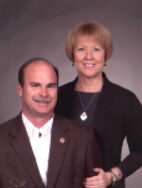LOOKING TO SPONSOR THIS WEB PAGE?
PLEASE EMAIL DENISE@MICHSAFETYCONFERENCE.ORG
Sponsorship is $200.00 and non-exclusive
This Training Division Page Sponsored By

Paul and Debbie DeNapoli
2024 Classes
Tuesday, April 16, 2024
10:15 am – 11:15 am
Risk Trends in the Healthcare Industry (Basic)
Joe Galusha, North American Leader, Aon Global Risk Consulting.
The Healthcare industry is facing unprecedented economic pressure and expected to be defined by continued efforts to contain rising costs of care while maximizing efficiency amid heightened demand from an aging population. This presentation will focus on the key business trends driving change and how they will effect the Healthcare Safety Professional.
12:30 pm – 1:30 pm
Radiation Dosimetry Compliance Program (Basic)
Debbie DeNapoli, Director of Safety and Emergency Management Operations, Michigan Medicine.
Monitoring employee safety by improving dosimetry exchange compliance to increase employee’s knowledge of their occupational radiation exposure in healthcare. Directly engage with front-line employees to determine the challenges around dosimetry exchange compliance.
1:45 pm – 2:45 pm
Health and Safety Challenges for Home Healthcare Aides (Intermediate)
James D. McGlothlin, MPH, Ph.D., CPE, FAIHA; and Matt Macomber, MS, CIH, General Industry Safety and Health Division, MIOSHA.
This diversified and rapidly growing industry primarily includes home nursing care, infusion services, and companion care. Of particular interest, is the growing number of home health care workers who assist disabled and/or older adults with their activities of daily living, including bathing, using the toilet, dressing, cooking, eating, housekeeping, and administering and monitoring the patient’s (client’s) medication regimen. This presentation will provide an overview of this growing industry. It will include a short case study of health care workers and their clients highlighting the challenges and opportunities that benefit the home health care worker to improve safe practices that reduces injuries for both the patient and health care worker.
3:30 pm – 4:30 pm
Surgical Smoke Mitigation in Healthcare Settings (Basic)
James Womble, Manager of the Industrial Hygiene Group, University of Michigan Health; and Derek Seamark, Senior Environmental Health & Safety Specialist, University of Michigan Health.
The speakers will include: 1. Introduction: a quick overview of the risk/hazards involved with surgical smoke (i.e., employee and patient risks, engineering controls available to help mitigate it).
2. Description of the current situation at U of M (as of October 2023) and which smoke scavenging systems/evacuators are currently used. What are the challenges we currently face getting staff to use them.
3. Explanation of the smoke study we conduct in our ORs. This involves comparing the particle counts and VOCs in smoke generating procedures when evacuators are used versus when they aren’t used. Also, we will share the feedback received from U of M OR staff on the culture around using them.
4. Outcome of our study and if we were successful getting smoke scavenging systems/evacuators to be used more often with more OR procedures.
Wednesday, April 17, 2024
9:00 am – 10:00 am
Mindful Solutions to Workplace Safety (Basic)
John Bolde, System Director of Safety & Security, Munson Healthcare, and Sue Bolde, Certified Teacher, Search Inside Yourself.
Today’s work environments are filled with increasingly competing demands and distractions. Multi-tasking has become a way of managing this new reality. The human factors that most frequently contribute to accidents and injuries are complacency, stress, fatigue, distraction, and haste. Fortunately, there is a scientifically proven intervention that can reduce these factors and help prevent critical moments from escalating – mindfulness. This presentation addresses the root cause of many safety issues and offers practical tools to improve workplace mindfulness.
10:15 am – 11:15 am
Ergonomics – Safe Patient Handling (Intermediate)
Janice Homola, ARM, CSPHA, Senior Advisor, Certified Just Culture Champion, Human and Operational Performance Advocate, EarlyMobility.com
Hospitals are still in crisis mode: there is a shortage of staff and an even greater shortage of funds. Yet, expectations for excellent care continue to rise. One method of retaining staff and improving patient outcomes is to incorporate a safe, early, and continuous mobility (SECM) program, where mobility is integrated into patients’ daily care. With use, SECM improves patients’ experience and outcomes. By using equipment to mobilize patients during care, employees are less likely to experience strains and more likely to enjoy their jobs. This presentation explores the SECM journey by sharing experiences from hospitals in the trenches.
The program slides for this session will not be posted to our website per the speakers request.
12:30 pm – 1:30 pm
Achieving a Culture of Zero Violence: Leadership Strategies to Reduce Risk and Anxiety in Healthcare (Intermediate)
Brian Uridge, Senior Director Public Safety and Security, Michigan Medicine.
Violence is one of the most significant occupational hazards facing health care workers today. According to OSHA, 75% of all violence in any workplace occurs in a healthcare setting. Additionally, the International Association for Healthcare Security and Safety (IAHSS) Foundation Research Committee’s latest hospital crime survey found that in 2019, assaults by patients jumped 25% and aggravated assaults more than doubled compared to the previous year. Violence reduction programs should be focused on developing a system-wide approach that recognizes every health care system as a community, with every floor being a unique neighborhood, each with different dynamics. Building trust, transparency, and training along with implementing a system-wide Community Policing Based strategy focused on reducing risk and anxiety through exceptional experience-based nontraditional contacts, staff training, professionalism, and critical incident response, form the basis from which a robust security program is built.
1:45 pm – 2:45 pm
Professional Ethics for Occupational Health and Safety Professionals, Part 1 (Intermediate)
Catherine Macomber, PhD, Saginaw Valley State University.
Professionals are faced with difficult decisions on a routine basis. These can be challenging to navigate and can result in negative outcomes and consequences if not addressed in a standardized way. This presentation on professional ethics will use case study as well as large and small group discussion to understand and apply a standardized ethical decision-making model.
3:00 pm – 4:00 pm
Professional Ethics for Occupational Health and Safety Professionals, Part 2 (Intermediate)
Catherine Macomber, PhD, Saginaw Valley State University.
This a continuation of the 1:45 pm program.
Division Members
Chairperson
Joe Galusha, CHSP, CIE
Aon Global Risk Consulting
Vice Chairperson
John Bolde, CHSP, CHEP
Munson Healthcare
Secretary
John Vercher, RN, CIC
McLaren Medical Group
Ashley Alcala, BSN, RN
McLaren Flint
Regina Carriere, CSP, CAWC
Retired Sr. Loss Control Consultant
Dan Clapper, MS, AT, ATC
Orthopedics and Sports Medicine
Stacy Culver
Marketlab
Debbie DeNapoli, CHSP
Michigan Medicine
Megan Efremov
Henry Ford Health
Laura Guist
OCS Management
Chanda Gilbert, BSHM, CMA (AAMA)
Henry Ford Health
Becky Krassa
Aon Global Risk Consulting
Matt Macomber, MS, CIH
MIOSHA
Breanna Miller, BSN, RN
Corewell Health
Kayla Plater
Trinity Health, Ann Arbor
Jessica Salazar, GSP, CHSP
Henry Ford Hospital
Kalaigh Sullivan, BHS, MPH
Henry Ford Health
Angela Thornton, CHSP
Covenant HealthCare System

